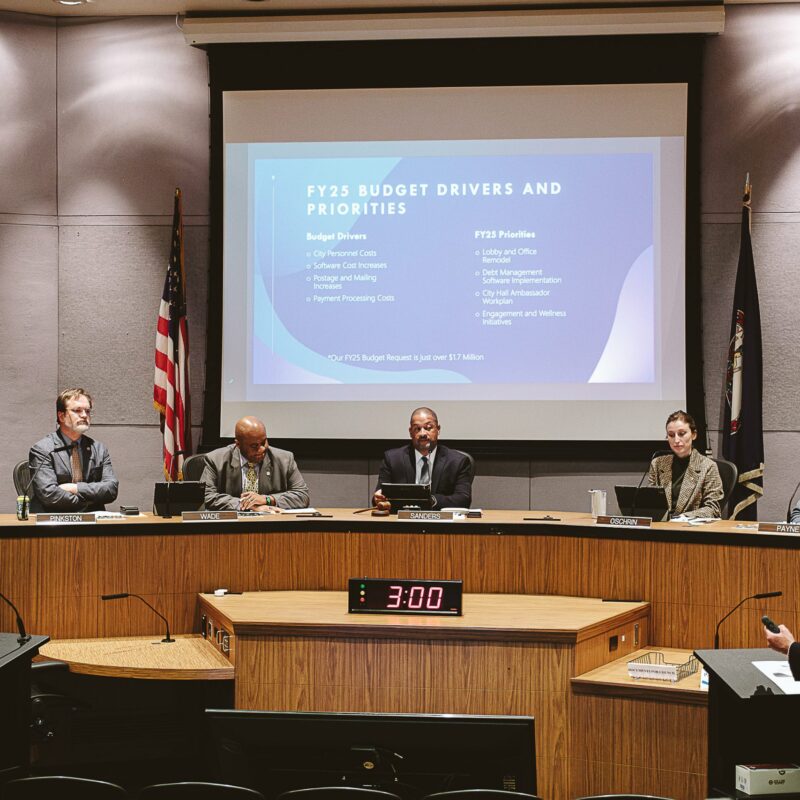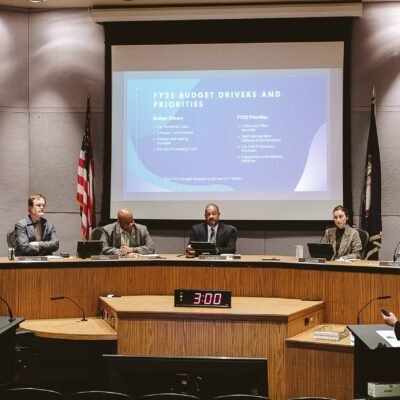Deliver Us from Hollywood: Previewing the Virginia Film Festival
When it went down back in 1993, the standoff between U.S. gov-ernment forces and David Koresh took 51 days, and immediately added the terms “Branch Davidian” and “Waco, Texas” to the national lexicon.
In Waco Resurrection, one of the most bizarre and thought-provoking computer game installations you’re ever likely to encounter, said standoff takes all of 10 minutes. And just like the real Koresh, the pixillated demagogue dies in the end.
A crazed mix of videogame, art object and virtual-reality simulator, Waco begins with the conventions of a standard third-person shooter and drops them at the intersection of Brilliant Street and Bizarre Avenue. Playing as Koresh, players strap on a hard plastic headpiece that bombards them with multiple layers of sound effects as they attempt to defend the Branch Davidian compound: Gunplay and explosions, actual audio of Koresh talking to the faithful and singing (yes, singing) and the truly disquieting psi-ops soundtrack (drills, screaming animals, etc.) that the Feds piped into the compound during the siege to disrupt the Davidians.
The game’s six-person development team actually unveiled Waco Resurrection in 2003, on the 10-year anniversary of the standoff. It began as a multiplayer experience, but, for its local debut at the Virginia Film Festival, the installation has been simplified to single-player only.
“There was this post-9/11 thing going on, of rooting out the other, in the political, social and religious range,” says Eddo Stern, the 34-year-old responsible for the game’s design. “David Koresh seemed to be this marker between individual freedom and a threat to the nation. Sort of a place where the political spectrum wraps around the back of your head. Here’s this free-love hippie with big hair…who also happens to be a weapons monger.”
The goal was never to drum up sympathy for a devil, or even exploit controversy, Stern insists—even though the game’s “hero” obviously evokes strong reactions from both players and observers alike.
“One of the things I want to challenge is that, by playing a character in a game, you’re somehow making him sympathetic,” says Stern, who’s also mulling games based on the experiences of “Unabomber” Ted Kaczynski and the Massacre at Wounded Knee. “This is more about trying to use the language of gaming to do other things.”
In addition to one of the weirdest subjects ever, Waco Resurrection also features voice activation, with in-game effects based on the otherworldly superpowers Koresh was convinced he could wield. Intoning the words “wrath of God” while playing brings flaming bibles raining down from the sky, killing everything in sight; the words “gun show” create a ring of AK-47s that take out enemies.
Oddly enough, it’s these supernatural powers that draw the biggest complaints from actual gamers—but not for the reason you might think. “People actually don’t like that there’s magic in the game,” says Stern. “They ask me, ‘Why didn’t you just keep it real?’ I can’t really answer that, other than to say that Koresh believed this stuff.”
As you might suspect, Stern and his co-developers didn’t get very far when they pitched Waco Resurrection to mainstream publishers a few years back. A Top 10 finish at a game-design contest at a recent Slamdance Film Festival earned Stern’s team a sit-down with the marketing suits at Activision, the second-largest U.S. videogame publisher. Stern recalls the conversation as “brief, and a little surreal.”
“The first question out of the guy’s mouth was, ‘How can we make this sell at Wal-Mart?’” Stern recalls with a laugh. “Oddly enough, with the right packaging, this probably would sell at Wal-Mart!”





